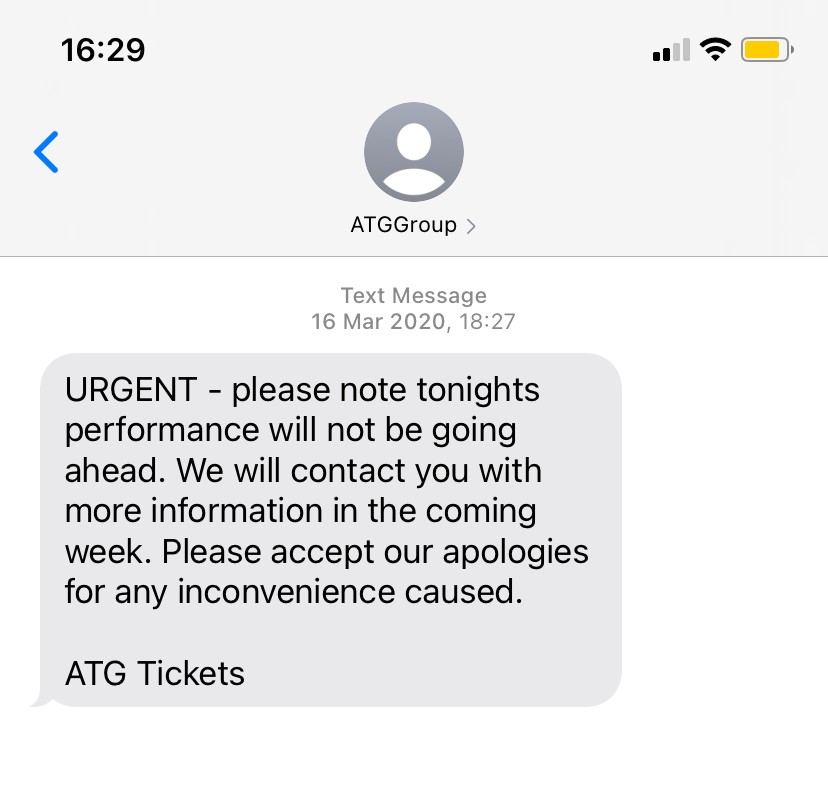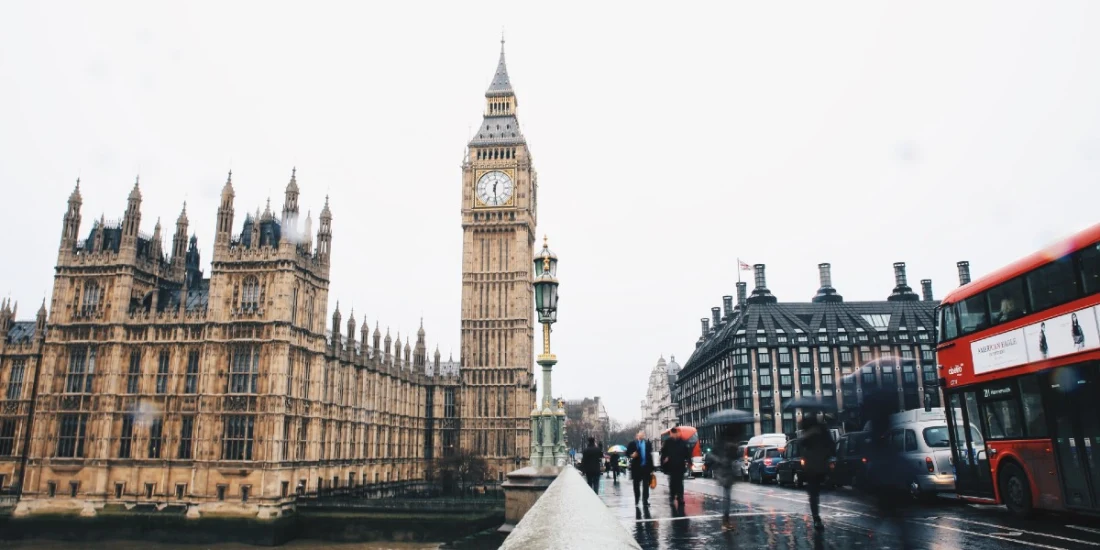A reflection on the one-year anniversary of West End theatres closing
They say you'll always remember where you were in life-changing moments. So where was I when I learned theatres were shutting on 16 March 2020? In a McDonalds on the Strand, crying into my lone chicken select. I was meant to be seeing The Seagull with Emilia Clarke at the Playhouse Theatre that night, but the closest I'd get to live theatre that evening would be the buskers performing along the Embankment.

Up until that point, I'd been pretty naive about coronavirus. Sure, I'd noticed people wearing masks, and hand sanitiser stations were popping up in train stations. But, was coronavirus going to change my life that much? Not really. How naive I was.
So when that text alert came through, telling me I couldn't see The Seagull, it felt like the world stopped. The bubble had finally been burst. This was it, wasn't it? The dawn of a new world, without being able to rely on theatres as a form of escapism for a few hours.
That first week working from home was a sign of the changing months to come. A cancelled Olivier Awards ceremony and an initial closure of all West End shows to the then far-out date of 26 April 2020. Exactly 365 days later and evidently, we continue to feel the consequences. But if there's any lessons to take away from a year in lockdown, it's that there really is — and I truly mean it — no business like showbusiness.
The London theatre scene has shone brightly, even if online. National Theatre productions were viewed by over 15 million audience members in 173 countries. The Shows Must Go On! YouTube channel popularised Andrew Lloyd Webber musicals for newer generations and streamed concerts have allowed us all to interact with our favourite performers as human beings, rather than knowing just their their stage personas. Building — and indeed rebuilding — the theatre industry through virtual means has been a monumental undertaking for the thousands of creatives and performers involved, but it's testament to strong-willed individuals in the industry that possibilities for theatre have grown in a time of global crisis.
For all this innovation and creative determination, it'd be remiss to ignore perfectly acceptable criticism from the past year. To take a phrase from Evita, has the money been rolling in on every side? Millions of pounds in financial support has been given to larger venues like the National Theatre and Shakespeare's Globe, but smaller playhouses nationwide are now struggling to survive. For a nation propped up by furlough schemes, millions of freelancers including West End actors have slipped through the cracks. Actors are now turning to new hustles to get by. It's a sorry state of affairs when an industry hailed as a "significant driver" by our own Chancellor of the Exchequer doesn't match his words with necessary action. But, because of new initiatives, theatre has now been made accessible to a wider society for free, and that's what should be celebrated in these dark times.
Theatres have continously filled the cracks, not just as a place of live entertainment, but as a place to connect and interact with others. Take the Kiln Theatre, which has been open as a food bank to serve its local community, for example. Chris Marcus and Damien Stanton set up the Theatre Support Fund+, which has raised over £800,000 to date. The flurry of theatre-dedicated streaming services has meant it's never been easier to watch a livestreamed show with friends and family at the same time. Even if we haven't been able to see loved ones, theatre has still been there as something to lean on for both entertainment and mental wellbeing. (Many tears were shed this year while listening to the Dear Evan Hansen soundtrack).
At one point, I even got to see some live theatre, catching Talking Heads at the Bridge Theatre and The Great Gatsby. Sure, wearing a mask feels strange at moments, and I've had to up my "smiling through my eyes to show how much I'm enjoying the show" game. But, this year has been a crash course in responding quickly to any changes that have come our way. Constantly changing rules have meant shows have opened and closed again faster than a quick change in the wings of a stage.
If this year in lockdown were the plot for a show, it'd get four stars. The first couple of weeks are the opening number — there'd be plenty of action, we'd meet all the characters (in this case, government officials and scientists) and the final word would be a punchy "lockdown" by a chorus spread out on stage. The next few months represent Act One, a slowburning act until the Act One finale of the summer, building to a crescendo of live, outdoor theatre once more!
The curtain fell down once more with another lockdown in the winter months, which would be symbolised in Act Two, and we were forced back to square one. Can we get our happy ending and rid the villain (Coronavirus) once and for all?
Celebrating this year in lockdown is like the 11 o'clock number in a musical. It's a stand-out moment of the show and something you don't forget, and hopefully we're at that point where it's not too long until the glorious finale, where theatres open to full audiences once more. It's currently scheduled for May, and I can't wait to be back at the theatre with friends, family, even alone at this point, just watching theatre.
It's important to reflect on how tough this past year has been though. We've all lost dear friends and family, whether it be directly from Covid-19 or as a consequential factor. Broadway was rocked when Waitress star Nick Cordero passed away due to complications with Covid-19, and it's likely that if you're reading this, you'll know someone who has either died, or still suffering long-term effects of this cruel, bitter virus. Theatre must make sure it honours those who have lost their lives, as well as those who lay their careers and lives on the line to entertain.
A lot has happened since receiving that text in McDonalds. But, the past year has brought lessons in perseverance and resilience that only a global pandemic could bring. To keep going even when it feels like there's nothing worth fighting for, because there definitely is. To properly take time for yourself. To listen and learn.
Many more lessons still need to be learned though. More needs to be done for marginalised communities. More needs to be done to amplify the voices of those often silenced. Importantly, we need to keep finding the little moments that make us smile.
We don't need any plays set in a pandemic just yet though.
Photo credit: London skyline (Photo courtesy of Heidi Fin on Unsplash)
Originally published on
